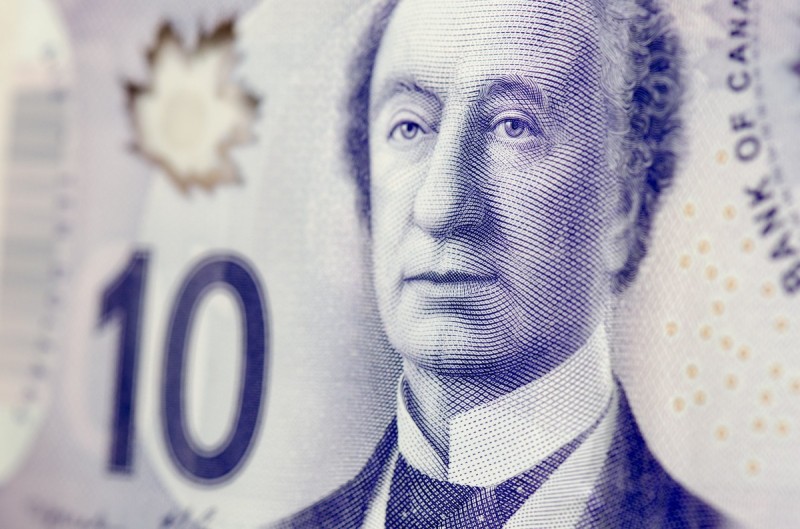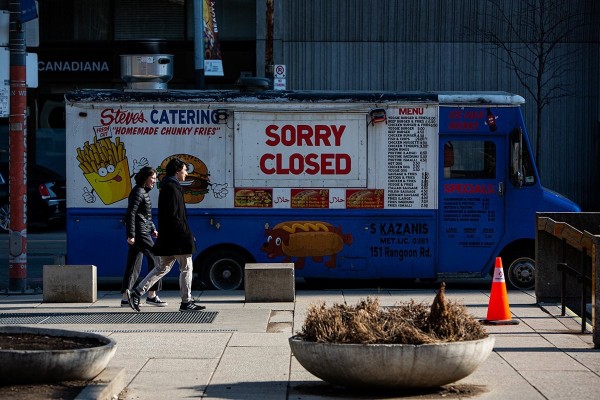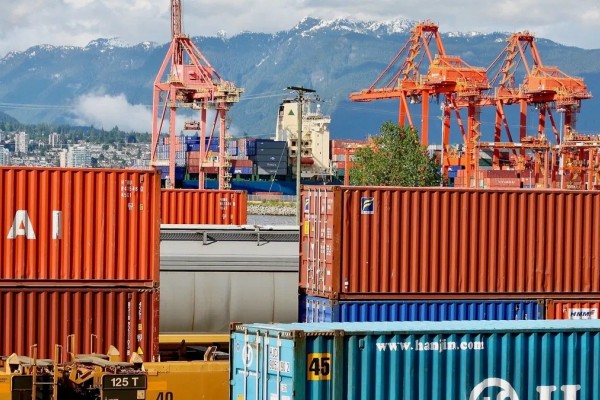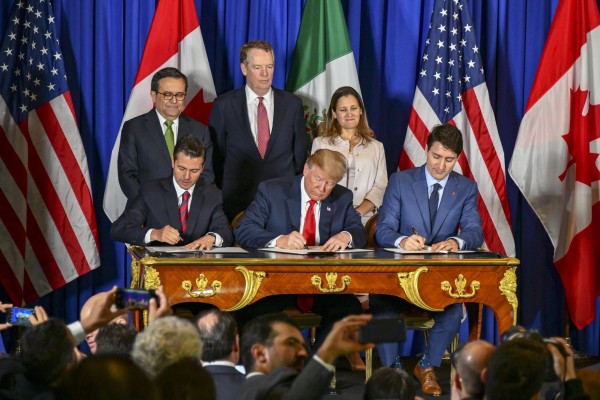Why a wealth tax must be part of any plan to end income inequality in Canada
Financing a bold social agenda through higher taxes on the wealthy is supported by most working Canadians

According to a report by the CCPA, fewer than 90 of the richest families in Canada own as much wealth as all of the people living in Newfoundland, New Brunswick, and Prince Edward Island—combined. Photo from Flickr.
Earlier this summer, Vancouver-based real-estate mogul and yoga-pant pioneer Chip Wilson stepped out from his $73.1 million mansion—the single most expensive residential property in British Columbia—to lecture a group of artists who were protesting a string of “renovictions” carried out by Wilson’s real estate company, Low Tide Properties.
The company, looking to acquire $1.5 billion worth of Vancouver real estate over 10 years, is one of several developers buying up relatively cheap property (mostly in the city’s downtown east side), handing out renoviction notices and jacking up rents so high to the point that artists, charities and non-profits can no longer afford to use such spaces. Once the “riff-raff” are squeezed out of the neighbourhood, developers typically demolish the once ‘affordable’ properties and replace the buildings with luxury condos, groomed for a wealthy clientele.
Wilson pursues this aggressive acquisition strategy, despite already sitting on top of an estimated $4 billion fortune. Just last week, Bloomberg reported Wilson lucked-out on an investment in a Chinese sports products company, returning him $43.1 million in just three months—“a chunk of change” for a man of his wealth, the Georgia Straight’s Travis Lupick noted.
Still, Wilson had few charitable words to offer the artists whose livelihoods his company has helped to ruin.
“The world doesn’t want enough of your product,” Wilson told the protestors.
But Nathan Drillot, who co-ran one of the independent music venues shut down by Low Tide, explained that his “product” was in fact “extremely popular,” and “packed every single weekend.”
Wilson laughed and walked away.
“Socialism will always fail,” he declared.
Protestors gathered outside Chip Wilson’s Point Grey mansion for a “rave against renovictions.” Photo by Jessica Kerr/Vancouver Is Awesome.
Add Wilson’s contemptuous dismissal of the city’s struggling artist community to his comments about the shapes of women’s bodies, his bizarre anti-feminist pet theories about erections, and belief in the benefits of child labour, and you have, as housing activist Derrick O’ Keeffe put it, a “walking advertisement for a wealth tax.”
Unlike income tax, wealth taxes levy the value of all assets, including real estate, stocks and bonds.
The federal NDP, in its 2019 election manifesto, says it wants to do just that. The party, in addition to increasing the top marginal tax rate by two points to 35 percent, proposes a one percent levy on wealth over $20 million while increasing the capital gains inclusion rate to 75 percent. Those measures, the NDP estimates, would generate $3 billion per year in revenue for important social projects.
The NDP’s wealth tax is similar to the policies proposed by US presidential candidates Elizabeth Warren and Bernie Sanders. The Massachusetts senator, who incidentally describes herself as “capitalist to the bone”, (to the delight of those seeking to quash the resurgence of socialism) calls for a two percent tax on wealth over $50 million, and an additional one percent tax on assets over $1 billion. This measure, she says, would generate nearly $3 trillion in public revenue over ten years. Senator Bernie Sanders, meanwhile, wants a 77 percent tax on the value of estates above $1 billion.
Reactions to the NDP’s plan, like Warren’s and Sanders’, are mixed. On the one hand, the idea of a wealth tax appears to be broadly popular among ordinary people in Canada. In an Abacus Data poll commissioned by the left-leaning advocacy group North99, 67 percent said they supported or somewhat supported the proposal (including 60 percent of those who voted Conservative in the last federal election).
Predictably, on the other hand, some wealthy elites and their apologists in corporate media decry the NDP’s proposal. Right-wing columnist Matthew Lau, for example, called the tax “class warfare” and described the manifesto in general as a “sea of economic absurdities and expensive promises.” The National Post’s Andrew Coyne, meanwhile, wondered: “what is the problem to which [the wealth tax] is a solution?” Others, including French economist Thomas Piketty, say that to be effective, a wealth tax needs to be globally coordinated, so as to prevent elites from income-splitting, or sheltering assets in foreign jurisdictions.
More revealing, though, is the fact that an increasing proportion of the upper class actually support some kind of wealth tax. In the US, the CNBC Millionaire Survey found that 60 percent of millionaires support Warren’s plan.
Furthermore, a group of 19 billionaires including Democratic Party financier George Soros and Facebook co-founder Chris Hughes, signed a joint letter last year, expressing their support for the proposal. In that letter, one paragraph particularly stands out:
The top 1/10 of 1% are projected to pay 3.2% of their wealth in taxes this year, while the bottom 99% of households are projected to pay 7.2%. This imbalance creates resentment and makes it harder for working-class Americans to achieve social mobility.
Nicholas Hanauer, one of the letter’s signatories, expressed that fear of working-class resentment in slightly more blunt terms back in 2014. “There is no example in human history where wealth accumulated like this and the pitchforks didn’t eventually come out,” he wrote.
If members of the billionaire class support a wealth tax on the grounds that it numbs adversarial attitudes towards wealthy elites—and slows the pace of growing inequality so that the rich can carry on their businesses as usual—is it likely, on its own, to be an effective way of serving the long-term interests of poor and working people? Or, put another way, would a small levy on Wilson’s $4.1 billion fortune stop his powerful company, and others like it, from further displacing Vancouver’s working class?
The NDP’s wealth tax is an important part of how the party plans to fund a package of essential public services, including universal mental, dental and pharmacare, as well as 500,000 units of affordable housing and public transit expansions. Yet while bolstering these services is a vital first step in alleviating poverty, the party lacks a broader program for eliminating inequality beyond a (albeit ambitious) social-democratic tax-and-spend formula.
In terms of its broader vision for the economy, the party manifesto defers in part to traditional private-sector ownership models. For example, in a section entitled “Scaling Up High-Tech Success”, the party manifesto reads:
A New Democrat government will step up as a partner to foster entrepreneurship and support a Canadian start-up culture, with a focus on helping Canadian companies in all regions of the country commercialize new technologies and scale-up, train, and retain the highly-skilled Canadian workforce needed to support industry growth and bolster Canadian competitiveness on the world stage.
With socialism currently polling far better in Canada than the federal NDP, it’s a wonder that more figures on the party’s left-wing haven’t seized the current political moment—where third-way social democracy is weakened, but not defeated—and more vocally pushed for plans to radically democratize the economy while expanding worker ownership of productive assets, in conjunction with a wealth tax.
If that seems like too big of a stretch for a party whose previous leader described raising personal taxes as “confiscation”, take a look at the British Labour Party. Under Jeremy Corbyn’s leadership, the same party that under Tony Blair spearheaded one of the most cynical brands of neoliberalism now proposes higher taxes on the wealthy as part of a much more transformative program aimed at democratizing the UK’s economy.
In its 2017 election manifesto (which was also endorsed by the Communist Party of Britain) Labour not only committed to nationalizing key public utilities—including rail, mail, water and energy—but also to placing ownership of those services “irreversibly in the hands of workers, and those who rely on their work.” Labour pledged to double the size of the cooperative sector and promised to introduce the “right of first refusal”, effectively making it easier for workers to take over private companies that go up for sale.
Last year, the party unveiled its plans to introduce an “Inclusive Ownership Fund”, which would oblige companies with 250 or more workers to transfer one percent of its shares each year into a pot owned by employees (capped at 10 percent of the total shares). This would grant workers voting rights and decision-making powers within a company.
Labour should aim to expand worker ownership into every sector of the economy. Doing so, however, would also require stringent controls to manage the likely blowback from capital, as Peter Gowan wrote in Jacobin:
The party must be prepared to end capital mobility if necessary, even though it would be incompatible with membership in the EU’s Single Market (one of whose ‘four freedoms’ is the absolute free movement of capital). The party must also be prepared to accelerate the transition to democratic ownership if capital attempts to sabotage the economy, to ensure that key sectors do not remain idle.
The UK’s political and economic landscapes are not the same as Canada’s, but Labour’s attention to ownership of the means of wealth and production, in addition to taxes, gets to the root of the fight against inequality in ways that a basic tax-and-spend model does not. Left movements can either simply tax small portions of the assets of the billionaire class as a way to beef up existing social services or go further in democratizing assets in ways that might eventually consign figures of Wilson’s outsized wealth and power to the past.
Consider also this: wealth taxes have the enthusiastic support of at least some members of the billionaire class. There is also the prospect of an elected Labour government taxing wealth and expanding worker ownership that has business executives in the UK trembling with fear. A Financial Times headline this month read: “Labour would cost UK companies £300 billion by shifting shares to staff,” while Bloomberg reported that the UK’s wealthiest people are already fleeing from “leftist firebrand, Jeremy Corbyn.”
Is the NDP stoking the same feelings of unease among Canada’s ruling class?
Alex Cosh is a writer and graduate student based in Powell River, British Columbia. He writes for PressProgress, and is the Opinions Editor at rabble.ca.










